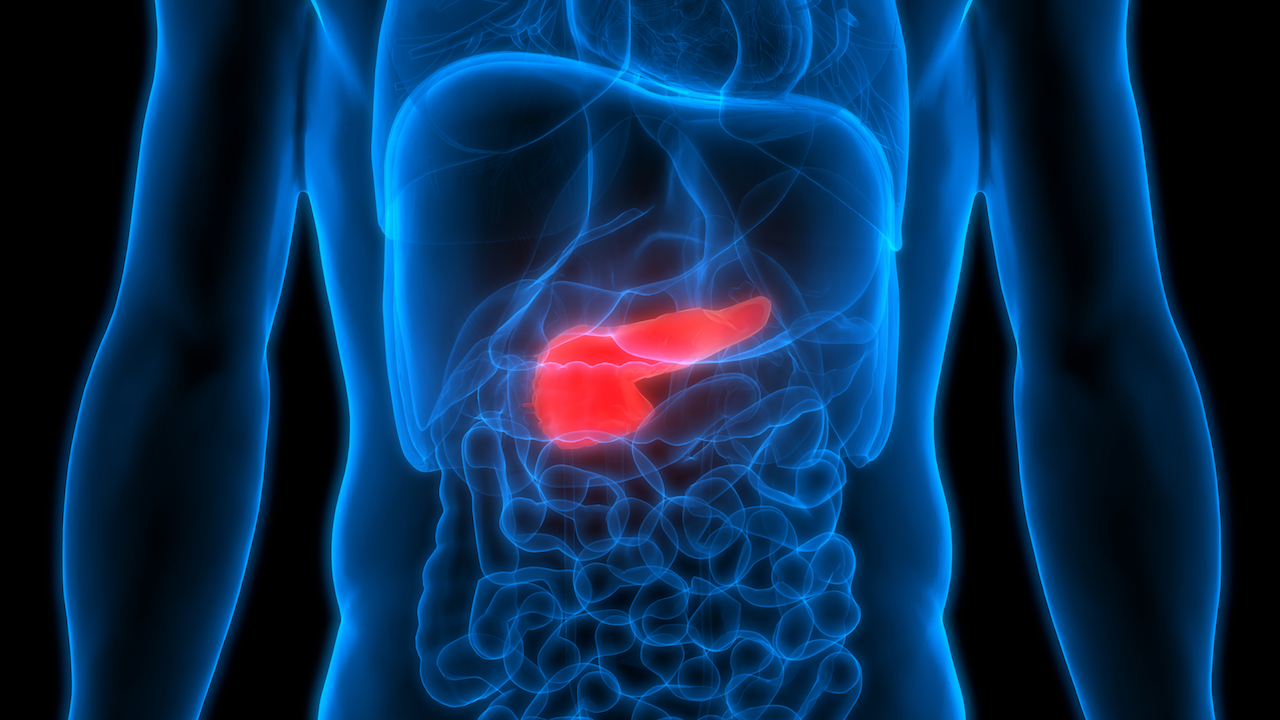Your pancreas is the organ that sits just behind the lower part of your stomach. When it’s inflamed you have what is called pancreatitis.
The main function of the pancreas is to produce and discharge hormones and enzymes that help with digestion and regulate your blood sugar (glucose).
How does this happen?
Digestive enzymes are released through the pancreatic duct into the small intestine where they’re activated to help break down fats and proteins.
Digestive hormones produced by the pancreas are released into the blood stream where they help regulate blood sugar levels.
What is pancreatitis?
Pancreatitis can either be acute (short-term) or chronic (long-term).
Acute pancreatitis usually lasts a few days to weeks and can be easily treated with medication.
Chronic pancreatitis typically develops after several episodes of acute pancreatitis. It’s a long-term condition that can last for months or even several years.
What are the causes?
Most cases of acute pancreatitis are brought on either by alcohol abuse or gallstones. Other causes may be from trauma or surgery on the stomach, prescribed medications, or having an abnormal pancreas or intestine. In rare cases, the disease may stem from infections like mumps.
Symptoms
Pancreatitis usually begins with severe pain in the upper stomach that may last for a few days. The pain reaches to the back and other areas. It could be sudden and intense, or a mild pain that’s triggered by eating, and slowly grows worse.
The stomach may be swollen and very tender. Other symptoms include:
- Nausea and vomitting
- Chills and fever
- Fatigue and weakness
- Raised blood pressure
- Dehydration
- Internal bleeding
- Increased heart and breathing rate
- Weight loss and loss of appetite
Pancreatic function tests can help your doctor decide if your pancreas can still make enough digestive enzymes. This can be done with different scans that will show the characteristics of the condition.
In more advanced stages of the disease, your doctor can use blood, urine, and stool tests to help with diagnosis.
Treatment
In the case of acute pancreatitis, treatment depends on whether the condition is mild and not likely to cause complications or be severe.
Prevention
While pancreatitis is still not fully understood, you can try to prevent it from developing:
If the condition is caused by gallstones and your gallbladder hasn’t been removed, avoid fatty and fried foods, butter, full-fat dairy products and animal fats. Include wholegrains and fresh fruit and vegetables in your diet. Eat smaller and more frequent meals to help prevent aggravating the pancreas.
If the cause is alcohol, stop drinking. Stick to your doctor’s orders and recommended diet. Take your medication to limit the attacks.
References
- https://www.medicinenet.com/pancreatitis/article.htm#what_is_pancreatitis
- https://www.news-medical.net/health/What-is-Pancreatitis.aspx
- https://www.nhs.uk/conditions/acute-pancreatitis/
- https://www.businesswire.com/news/home/20180511005537/en/Chronic-Pancreatitis-Epiomic-Epidemiology-Report-Forecast-23
- https://www.upi.com/Study-links-pancreatitis-to-triglycerides-gallstones-alcohol-abuse-in-minorities/3551523900285/

